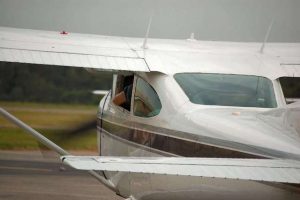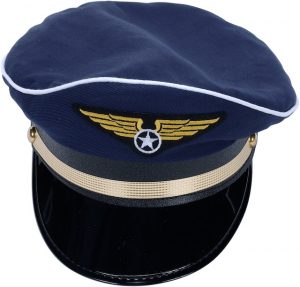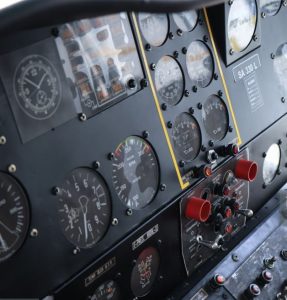How To Find An Entry-Level Airline Pilot Job
 Starting a career as an airline pilot takes effort, training, and timing. Entry-level flying jobs offer a path into the airline world. Many airlines in Australia and beyond seek new pilots with fresh skills. With the right approach, landing a job becomes easier. Preparation and steady steps make progress possible.
Starting a career as an airline pilot takes effort, training, and timing. Entry-level flying jobs offer a path into the airline world. Many airlines in Australia and beyond seek new pilots with fresh skills. With the right approach, landing a job becomes easier. Preparation and steady steps make progress possible.
Start your job search with a commercial pilot license
Every airline pilot begins with a commercial pilot license. This license allows you to fly aircraft for pay. You must log required flight hours during training. Flight schools help track progress and guide the way. Once complete, your license opens up any flying job across many regions and airlines.
Attend a reputable flying school
Pick a school with strong links to airlines. These schools offer good training and job leads. Many schools have hiring programs with regional airlines. Attend classes, fly often, and keep a clean flight record. A good school name helps during airline applications and interviews later.
Build hours with instructing or charter jobs
To meet airline standards, gain flight hours in real jobs. Flight instructing is one way to build hours steadily. Charter companies also hire new pilots for short routes. These jobs may not be in large cities. However, each hour you fly moves you closer to airline readiness.
Join cadet programs offered by airlines
Some airlines offer cadet programs that train pilots from the ground up. These programs include classroom work and simulator sessions. Upon finishing, you move into airline operations quickly. Cadet programs often include flight hours and line training. Entry into such programs can fast-track your first airline job.
Track hiring trends in the aviation industry
Aviation hiring moves in cycles based on demand and fleet growth. Watch airline news and flight school reports. Read aviation job boards and newsletters for hints about hiring periods. Apply during high demand periods for better chances. Follow aircraft orders and new route announcements closely.
Use job portals with aviation filters
Several job portals allow users to search by license and location. Use terms like entry-level pilot job or first officer. Set your location for better results. Save listings and apply fast. Upload your resume to get noticed by recruiters looking for entry-level pilots.
Update and sharpen your resume
Your resume should show your training, licenses, and total hours clearly. Use simple language and keep the format clean. Include aircraft types flown and simulator hours. Highlight teamwork and safety awareness. Make each application fit the airline’s values and needs. Resumes that match job listings get more replies.
Practice for pilot aptitude and interview tests
Airlines test your flying skills and decision-making during hiring. Practice with online tools and mock interview platforms. Study general aviation theory and aircraft systems. Learn how to stay calm during simulator sessions. Many hiring steps test how well you solve problems under pressure.
Reach out to instructors and mentors
Flying instructors often know airlines that need entry-level pilots. Keep in touch after finishing school. Ask for tips and recommendations. Instructors may also help with interview prep. Their experience adds value to your job search. A strong reference from them helps during hiring.
Join aviation associations and pilot networks
Pilot associations offer access to news, resources, and job boards. These groups also help build professional links. Attend networking events and workshops. Many groups support new pilots with tools and training. Staying active in the community brings new leads and support.
Keep documents ready and organised
Entry-level jobs require complete paperwork. These include your license, logbook, medical certificate, and simulator records. Store digital copies on your device and in the cloud. Employers may request them quickly. Keeping everything ready shows you can start flying without delay.
Apply for jobs with smaller airlines first
Large airlines have long waiting lists. Smaller carriers often take in new pilots faster. These include charter companies and regional airlines. Jobs here help build hours and airline skills. Each flight improves your experience and moves you closer to bigger airlines later on.
Use social media for aviation jobs
LinkedIn and Facebook have job groups for aviation workers. Join pilot-specific communities and follow airline pages. Post updates about your flying progress. Comment on job posts and interact with airline recruiters. These platforms connect you with the right people at the right time.
Join airline job fairs and events
Attend job fairs hosted by training schools, airports, or airlines. These events let you meet recruiters face to face. Bring printed resumes and dress neatly. Speak clearly about your skills and flying hours. A good first meeting can turn into an interview or job offer.
Stay in contact with past flight school classmates
Your classmates may find jobs first and hear about openings. Stay in touch and share updates. Sometimes jobs come through friends who pass your name to recruiters. Strong peer support helps during tough times. Use your network to grow faster in aviation.
Train in multi-crew coordination programs
Airlines often look for pilots with multi-crew experience. Many training centres offer multi-crew coordination courses. These programs teach how to work with a team in the cockpit. Completing this training improves your application and prepares you for airline operations.
Join safety and emergency training workshops
Airlines want pilots trained in safety drills and crisis plans. Workshops cover engine fires, passenger care, and weather challenges. Attend these programs and earn extra certificates. Add them to your resume and LinkedIn profile. Such training makes you stand out in applications.
Check airline career pages weekly
Go straight to airline websites and check their job sections. Many post entry-level openings there first. Apply directly through their portals. Some airlines ask you to create a profile. Fill in every section and keep your details updated for fast replies.
Use recruiters who specialise in aviation
Aviation job recruiters match new pilots with job openings. Upload your resume to their portals. They may reach out when jobs open up. Stay in touch and reply quickly. Recruiters often know when airlines are planning to hire new pilots.
Gain experience in remote or FIFO jobs
Fly-in-fly-out jobs in mining or tourism areas offer steady hours. These jobs often need newer pilots with a valid license. You may fly smaller aircraft in tough conditions. Each trip helps build hours and gives experience flying under different weather and terrain.
Keep simulator skills fresh between jobs
Use flight simulators to stay sharp while waiting for a job. Practice takeoffs, landings, and emergency responses. Join sim centres that offer airline-style training. Some employers let you count simulator time if it meets their standards. Staying current helps you perform better during tests.
Prepare for online interviews and video calls
Many airlines now conduct online interviews. Set up a clean background and wear neat clothes. Speak clearly and look at the camera. Test your microphone and lighting in advance. A strong video interview can lead to the next hiring step.
Fly as much as you can legally and safely
Try to log more hours by flying under supervision or with clubs. Offer to help with ferry flights or repositioning. The more hours you fly, the better your job chances. Every logged hour brings more skills and better job offers.
Take refresher courses if you have gaps
If time has passed since your last flight, take refresher courses. These show you are serious about staying current. Courses may include simulator training or short flights. Add the hours to your logbook. Show them during interviews to build confidence.
Read aviation news and industry blogs
Stay updated by reading pilot blogs, airline news, and training updates. These sources tell you what recruiters want. They also share updates on aircraft orders, new routes, or government support for airlines. Reading daily helps you plan your job search better.
Keep a clean flying and health record
Airlines check your background for safety and fitness. Stay healthy with good sleep and food habits. Exercise regularly and avoid risky behaviour. Renew your medicals on time. A clean record helps you pass checks and keeps you in line for new jobs.
Practice interview scenarios with friends
Work through mock interviews with fellow pilots or friends. Answer basic aviation questions with short, clear replies. Practice how to explain past training or small mistakes. Review body language and tone. Feedback from others helps you perform better under pressure.
Search for jobs using different keywords
When using job sites, try different terms. Use first officer, low hour pilot, airline trainee, or aviation graduate. Each term can show new listings. Change the location settings to find jobs across states. Search daily and apply early for the best results.
Stay patient and keep taking action
Job searches take time. Keep applying, flying, and learning each day. Track your applications in a spreadsheet. Follow up when needed and stay polite. Stay ready in case a recruiter calls. Each step brings you closer to the flying seat.
Stay flexible with location and schedule
Entry-level jobs may be outside big cities. Be open to moving where work is available. Accept shift work or unusual hours. Proving yourself in smaller markets builds your name. Once you gain experience, better jobs will follow.
Focus on teamwork and crew awareness
Airlines want pilots who work well with others. Practice good listening, clear speaking, and shared decision-making. Review Crew Resource Management materials. Bring these lessons into interviews and simulator assessments. Working well in teams leads to trust and more hiring chances.
Update your application tools often
Review your resume, LinkedIn, and job profiles weekly. Add new hours, training, and licenses. Clean out errors and update your job goals. Your online profile should match your resume. Sharp profiles make it easier for recruiters to contact you.
Join flight clubs and aviation meetups
Pilot clubs allow you to fly, network, and learn from others. Attend meetups in your area or online. These clubs often know about small flying jobs. Sharing your plans can lead to helpful tips or support. Active members get more job leads.
Ask for help when needed
Do not hesitate to ask for support from instructors or peers. They may suggest better training, employers, or next steps. Many people are ready to help. Showing effort often brings support from those who see your drive and commitment.
Path to the flight deck
Reaching your first airline job takes effort and smart planning. Stay active in your search and track progress clearly. Learn, fly, apply, and build strong links in the aviation world. Keep moving forward and trust your training. The sky opens up when you keep working toward it.










